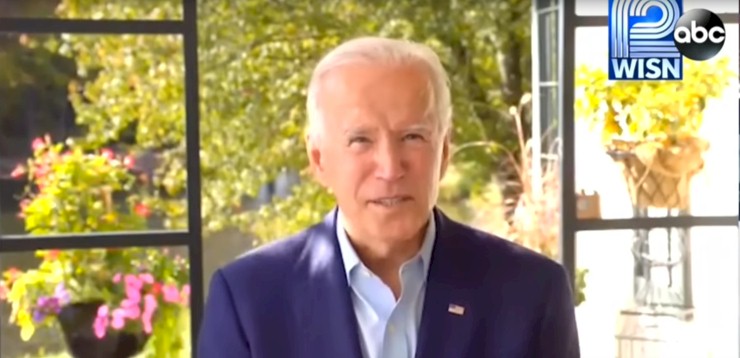A Handy Media Guide To Covering (Up) Democratic Scandals
By I&I Editorial
IssuesInsights.com

In the week after the New York Post published its damaging report on Hunter Biden, the New York Times has run a grand total of five news stories on the topic.
The first report started this way: “The Biden campaign on Wednesday rejected a New York Post report about Joseph R. Biden Jr. and his son Hunter that the nation’s leading social media companies deemed so dubious that they limited access to the article on their platforms.”
Two of the other stories focused on the social media angle. Another hinted that the scandal was part of a Russian disinformation campaign. The fifth was about how some reporters at the New York Post had “questioned the credibility” of the story.
Whatever you think of the New York Post or Donald Trump or Joe Biden, this story is what we in the news business call “news.” Yet the rest of the mainstream press handled it almost exactly as the Times did – as an inconvenience.
Those of us who’ve been around awhile have come to notice a similar pattern when it comes to every other scandal involving Democrats. So here, as a reader service, is a handy media guide to how the press covers — or more appropriately, covers up — Democratic scandals.
1. Ignore the story as long as possible. The first step in reporing a Democratic scandal is to not cover it at all. Keep it contained among bloggers and the conservative press in hopes that it doesn’t go anywhere. A perfect example of this was the Biden town hall held right after the Post story broke during which ABC News’ George Stephanopoulos asked Biden zero questions about the report.
2. Devote minimal resources to covering it. When ignoring the story isn’t a possibility, devote minimal resources to it. By all means, don’t assign investigative reporters to cover it, lest they dig up something else. The mainstream press initially justified its lack of coverage of the substance of the Post report by claiming that it hadn’t verified the story. That’s easy to do when you don’t lift a finger to actually verify it. As the Post wrote in an editorial: “Don’t ask too many questions, and you can dismiss it all as ‘unverified.’ ”
3. Focus on the denials. The first story in Politico about the Post story was “Biden campaign lashes out at the New York Post.” The Times’ headline was “Allegation on Biden Prompts Pushback From Social Media Companies.”
4. Attack the messenger. In the case of the Post story, mainstream news outlets were more interested in trashing Trump attorney Rudy Giuliani than in determining the veracity of the emails he was revealing, claiming he was a stooge spreading Russian disinformation. The Washington Post’s initial coverage ran under the headline: “White House was warned Giuliani was target of Russian intelligence operation to feed misinformation to Trump.” The Daily Beast’s contribution said that “Bolton Warned His Staff To Stay Away From Russia-Aligned Rudy Giuliani.”
5. Play up doubts. Rather than chase down the facts of the scandal, the New York Times sent reporters to investigate the Post. The result was a story headlined “New York Post Published Hunter Biden Report Amid Newsroom Doubts.”
6. Cast it in a partisan light. If a scandal involves a Democrat, the press can always be counted on to dismiss it as part of some Republican strategy to distract voters from the important issues.
7. Set an incredibly high bar for what constitutes wrongdoing. If nothing else, the Hunter emails suggest that Joe Biden flat out lied when he claimed he’d had nothing to do with Hunter’s business dealings. Yet while the press keeps track of every utterance of Trump’s that it can claim to be untrue, Biden’s apparent flagrant and self-serving lie is treated as a nothingburger.
8. Do the opposite of No. 7 if the scandal involves a Republican.
We’ve said it before and we’ll say it again: If
it weren’t for double standards, the mainstream
media would have no standards at all.

